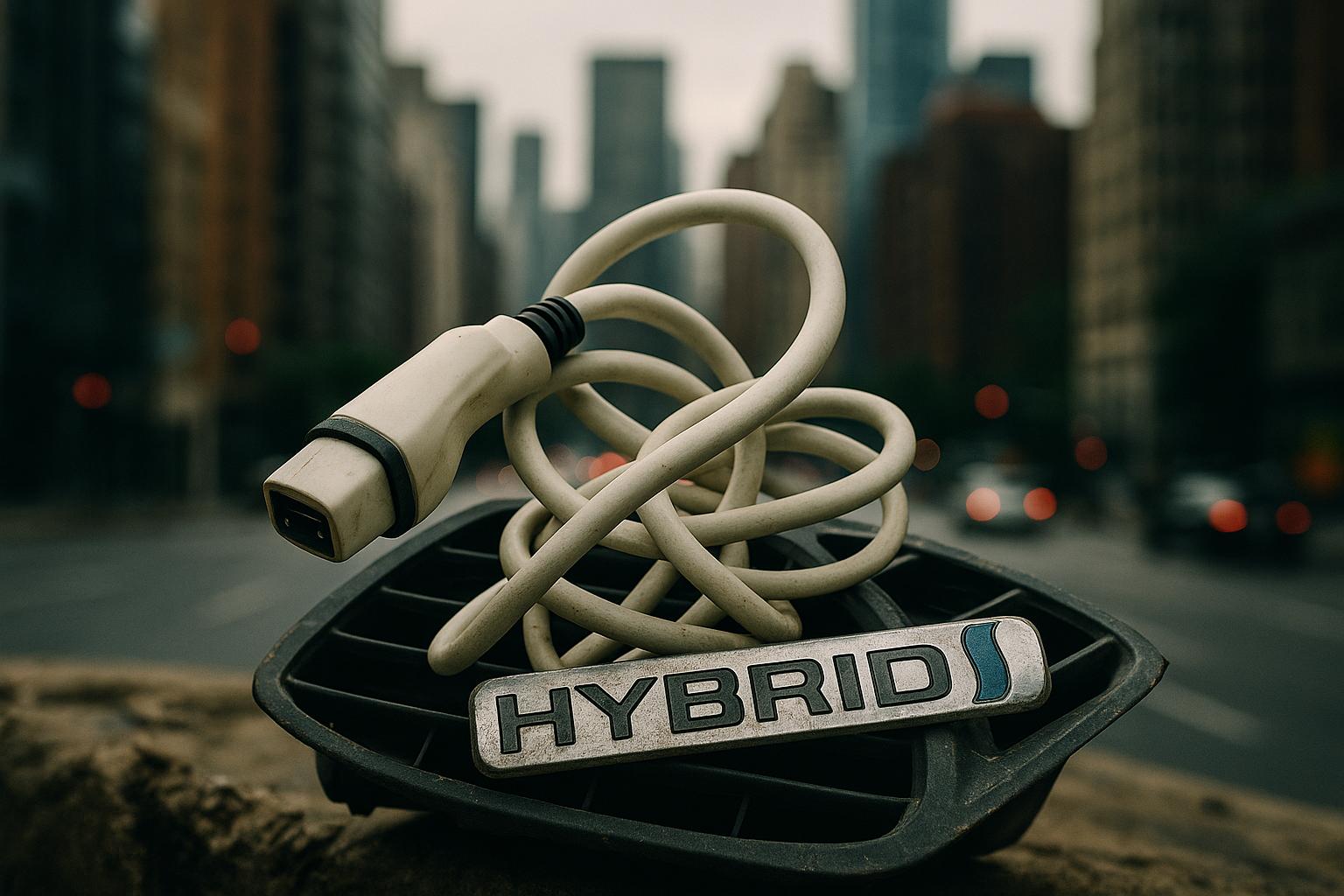Two decades after the electric vehicle (EV) revolution was first envisioned, the automotive industry stands at a complex crossroads where environmental aspirations, commercial interests, and political influences collide. Plug-in hybrid electric vehicles (PHEVs), once hailed as a bridge between conventional petrol cars and fully electric transportation, are under renewed scrutiny for falling short of their environmental promises.
Recent real-world emissions testing by the European nonprofit Transport and Environment has revealed that PHEVs reduce carbon dioxide emissions by a mere 19% compared to traditional petrol and diesel cars—a stark contrast to the 75% reduction claimed in laboratory tests. This discrepancy highlights a significant gap between regulatory targets and on-the-road realities, calling into question the sustainability credentials of these vehicles. Such findings amplify concerns that governments, including the UK, risk endorsing technologies that do not deliver their touted climate benefits, especially as weakening EV targets effectively prolong support for hybrids that emit considerably more CO2 than previously acknowledged.
Despite environmental shortcomings, hybrids continue to be a lucrative product for carmakers. Automakers benefit financially from marketing hybrids, which amount to petrol cars retrofitted with batteries, commanding higher prices without the full engineering shift to electric propulsion. This profitability, coupled with substantial lobbying power, has helped dilute stringent emissions standards in Europe. Indeed, some major European manufacturers avoided over €5 billion in fines due to emissions compliance being assessed without real-world data.
Meanwhile, the broader automotive market is facing disruption from new entrants, notably China’s BYD, now the leading EV brand in the UK, even without subsidies that exclude Chinese-made vehicles on environmental grounds. BYD’s competitive pricing—offering electric models under £20,000—poses a direct challenge to established players like Tesla, whose brand loyalty has been affected by Elon Musk’s controversial political views. However, the landscape may soon shift again as traditional manufacturers pursue breakthroughs in battery technology.
Toyota, historically cautious in its EV ambitions, has pledged to commercialise solid-state batteries by 2027. These batteries promise safer power packs, faster charging, and longer driving ranges, potentially enabling journeys such as London to Milan on a single charge—a leap beyond the current limitations of lithium-ion batteries. Collaboration with Japan’s Idemitsu Kosan to build a lithium sulphide plant underpins this effort, aiming to supply enough material to support tens of thousands of vehicles by the late 2020s. However, production is expected initially to be limited to high-end, low-volume models, with broader rollout in the following decades.
While such technological innovation could redefine electric mobility, it also illustrates the dynamic and competitive nature of the EV market. Toyota’s advancement could leapfrog current leaders like BYD, raising questions about who stands to benefit from these shifts and at what societal and environmental cost. The ongoing capitalist drive rewards profitability and market power often more than sustainability or equity.
Ultimately, the debate must extend beyond the merits of electric versus hybrid vehicles to address the foundational role of cars in society. Solely relying on EVs risks perpetuating urban congestion, road fatalities, and an unsustainable dependence on critical minerals. A meaningful transition toward a lower-carbon future demands not only cleaner vehicles but fewer cars overall, accompanied by a reimagining of urban spaces prioritising mass transit and equitable resource sharing. Without this comprehensive approach, automotive innovation alone will not be enough to meet the pressing challenges of climate change and social justice.
📌 Reference Map:
- Paragraph 1 – [1], [2], [6]
- Paragraph 2 – [1], [2], [6]
- Paragraph 3 – [1], [6]
- Paragraph 4 – [1], [7], [4], [3], [5]
- Paragraph 5 – [1]
- Paragraph 6 – [1]
Source: Noah Wire Services
